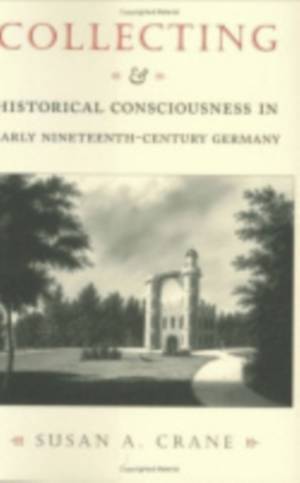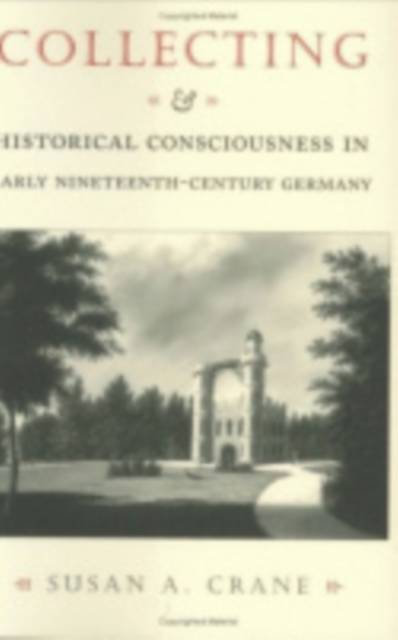
- Retrait gratuit dans votre magasin Club
- 7.000.000 titres dans notre catalogue
- Payer en toute sécurité
- Toujours un magasin près de chez vous
- Retrait gratuit dans votre magasin Club
- 7.000.0000 titres dans notre catalogue
- Payer en toute sécurité
- Toujours un magasin près de chez vous
Collecting and Historical Consciousness in Early Nineteenth-Century Germany
Sacrificial Sons and the Father's Witness
Susan A CraneDescription
This provocative book challenges long-held assumptions about the nature of historical consciousness in Germany. Susan A. Crane argues that the ever-more-elaborate preservation of the historical may actually reduce the likelihood that history can be experienced with the freshness and individuality characteristic of the early collectors and preservationists. Her book is both a study of the emergence in late eighteenth- and early nineteenth-century Germany of a distinctively modern conception of historical consciousness, and a meditation on what was lost as historical thought became institutionalized and professionalized. Public forms of remembering the past which are familiar today, such as historical museums and historical preservation, have surprisingly recent origins. In Germany, caring about the past took on these distinctively new forms after the Napoleonic wars. The Brothers Grimm gathered fairy tales and documented the origins of the German language. Historical preservationists collected documents and artifacts and organized the conservation of cathedrals and other historic buildings. Collectors formed historical societies and created Germany's historical museums. No single national consciousness emerged; instead, many groups used similar means to make different claims about what it meant to have a German past.Although individuals were responsible for stimulating new interest in the past, they chose to band together in voluntary associations to promote collective awareness of German history. In doing so, however, they clashed with academic and political interests and lost control over the very artifacts, collections, and buildings they had saved from ruin. Examining the letters and publications of the amateur collectors, Crane shows how historical consciousness came to be represented in collective terms--whether regional or national--and in effect robbed everyone of the capacity to experience history individually and spontaneously.
Spécifications
Parties prenantes
- Auteur(s) :
- Editeur:
Contenu
- Nombre de pages :
- 224
- Langue:
- Anglais
Caractéristiques
- EAN:
- 9780801437526
- Date de parution :
- 17-08-00
- Format:
- Livre relié
- Format numérique:
- Genaaid
- Dimensions :
- 158 mm x 235 mm
- Poids :
- 453 g

Les avis
Nous publions uniquement les avis qui respectent les conditions requises. Consultez nos conditions pour les avis.






